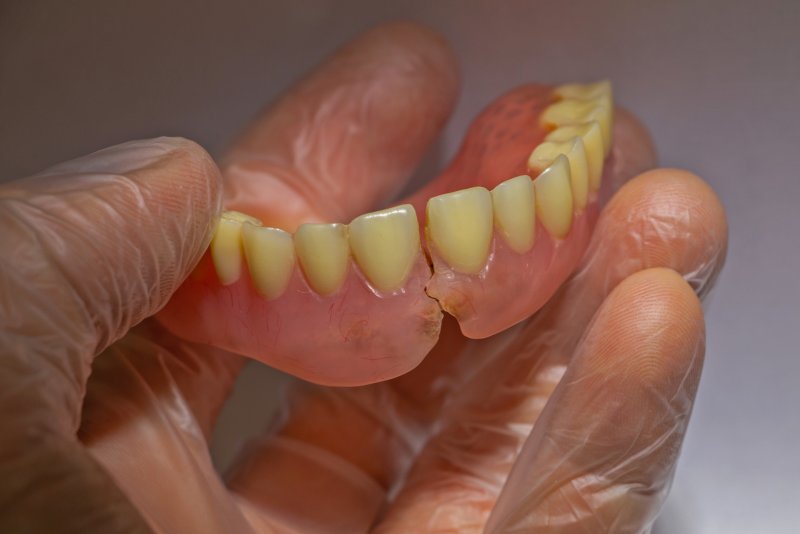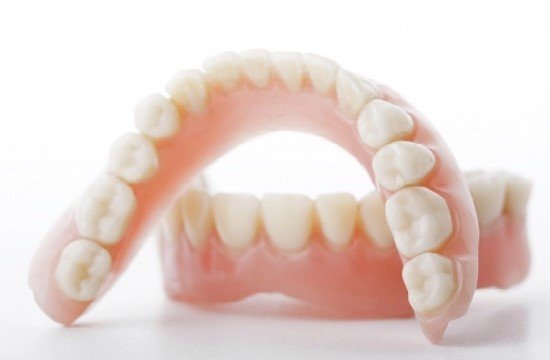Poorly fitting dentures can cause discomfort and oral health issues. Check for signs like loose fit and oral infections.
If you experience these symptoms, consider readjusting, relining, or replacing your dentures for a better fit. In Canada, individuals facing dentures fitting poorly can seek solutions from dental professionals offering adjustments, relining services, or alternative options like dental implants.
Addressing ill-fitting dentures promptly is crucial to ensure comfort, proper function, and overall oral health. If you suspect your dentures are not fitting correctly, consult with a dentist in Richmond Hill, to explore the best course of action for your situation.

Credit: www.crsmile.com
Recognizing The Signs Of Poorly Fitting Dentures
When it comes to dentures, a proper fit is crucial for comfort and functionality. Recognizing the signs of poorly fitting dentures is essential to address any issues promptly.
Visible Gaps Between Dentures And Gums
One of the key indicators of poorly fitting dentures is the presence of visible gaps between the dentures and the gums. These gaps can lead to discomfort and difficulty in chewing or speaking.
Frequent Denture Slippage During Speech Or Eating
If you experience frequent slippage of your dentures while talking or eating, it may be a sign that they are not fitting properly. This can not only be embarrassing but also cause irritation and sores in the mouth.
Common Complaints With Ill-fitting Dentures
Ill-fitting dentures can cause a range of discomforts and challenges, leading to common complaints that affect the overall quality of life for denture wearers. From sore spots and mouth ulcers to difficulty chewing and biting, the impact of poorly fitting dentures can be significant.
Sore Spots And Mouth Ulcers
One of the most common complaints associated with ill-fitting dentures is the development of sore spots and mouth ulcers. These painful areas can occur due to the rubbing and friction caused by dentures that do not fit properly. As a result, the soft tissues of the mouth become irritated and inflamed, leading to discomfort and difficulty in wearing the dentures.
Difficulty Chewing And Biting
Another prevalent issue with poorly fitting dentures is the difficulty in chewing and biting. When dentures do not fit securely, they can move around during eating, making it challenging to bite into and chew food effectively. This can not only lead to frustration and embarrassment but also impact the ability to consume a nutritious diet.
Oral Health Complications From Bad Dentures
When dentures fit poorly, it can lead to various oral health complications, impacting the overall well-being of an individual. From gum inflammation and infections to bone loss and facial structure changes, the effects of bad dentures can be far-reaching and detrimental.
Gum Inflammation And Infections
Poorly fitting dentures can cause gum inflammation, leading to discomfort and pain. The ill-fitting dentures create friction against the gums, resulting in irritation and inflammation. This can also create open sores, providing a breeding ground for bacterial infections, further exacerbating the oral health issues.
Bone Loss And Facial Structure Changes
Badly fitting dentures can contribute to bone loss in the jaw. The pressure exerted by the ill-fitting dentures can lead to the resorption of the underlying bone, causing changes in the facial structure over time. This can result in a sunken appearance and facial sagging, impacting both aesthetics and functionality.

Credit: www.churchfielddental.co.uk
The Emotional And Social Impact Of Denture Problems
Struggling with poorly fitting dentures can have a profound emotional and social impact. From speech difficulties to self-consciousness, the effects can be challenging. Seeking professional help to address these issues is crucial for restoring confidence and improving overall well-being.
Reduced Self-confidence
Poorly fitting dentures can have a significant impact on a person’s self-esteem. When dentures slip or fall out while speaking or eating, it can be embarrassing and cause the individual to feel self-conscious. The fear of embarrassment can cause individuals to avoid social situations, leading to feelings of loneliness and isolation. The lack of confidence can also affect their personal and professional life.
Social Withdrawal And Isolation
The emotional impact of ill-fitting dentures can lead to social withdrawal and isolation. Individuals may feel ashamed or embarrassed about their dentures, causing them to avoid social interactions. The fear of dentures slipping or falling out can cause anxiety, leading to a lack of desire to leave the house or participate in social activities. Social isolation can have negative effects on mental and physical health, leading to depression and other health issues. It is essential to seek dental care to address ill-fitting dentures as soon as possible. Dentists can make adjustments to the dentures or recommend other options, such as dental implants, to improve the fit. By addressing the issue, individuals can improve their self-confidence and quality of life, allowing them to enjoy social interactions without fear or embarrassment.
Troubleshooting Denture Fit At Home
Improve the fit of your dentures at home by checking for signs of poor fitting. Ensure they stay in place comfortably to avoid discomfort and oral issues. Consider adjustments, relining, or replacements for a better denture experience.
Assessing Denture Stability
If you are experiencing discomfort or difficulty while eating, speaking, or smiling with your dentures, it may be a sign of poor fit. To troubleshoot the issue, start by assessing the stability of your dentures. Try gently biting down and moving your jaw side-to-side to see if your dentures move or slip out of place. If so, this may indicate that your dentures are not fitting properly.
When To Use Denture Adhesives
One way to improve the fit of your dentures is by using denture adhesives. These products can help keep your dentures in place and prevent them from slipping or moving around in your mouth. However, it is important to note that denture adhesives should not be used as a long-term solution for poorly fitting dentures. If you find that you need to use denture adhesives frequently, it may be time to speak with your dentist about adjusting or replacing your dentures.
Ensuring Proper Denture Care
In addition to assessing the stability of your dentures and using denture adhesives when necessary, it is important to ensure that you are taking proper care of your dentures. This includes cleaning them regularly with a denture brush and soaking them in a denture cleaner to remove any bacteria or food particles that may be stuck in the dentures. If you continue to experience discomfort or difficulty with your dentures, it may be time to speak with your dentist about adjusting or replacing them. Poorly fitting dentures can lead to oral health issues and can make it difficult to eat, speak, and smile with confidence. Don’t hesitate to seek professional help to ensure that your dentures fit properly and are comfortable to wear.

Credit: www.denturesuk.com
Professional Solutions For Denture Issues
Poorly fitting dentures can cause discomfort and affect your ability to eat, speak, and smile with confidence. Fortunately, there are professional solutions available to address denture issues and ensure a comfortable fit.
Adjustment And Re-fitting Services
If you are experiencing discomfort or notice that your dentures are not fitting properly, seeking adjustment and re-fitting services from a qualified denturist is essential. These services may involve:
- Realigning the dentures to improve the fit
- Adjusting the shape and size of the dentures
- Resolving any pressure points or areas causing irritation
- Ensuring proper alignment for natural-looking results
Considering Denture Reline Or Replacement
In some cases, denture relining or replacement may be necessary to address persistent fitting issues. Signs that indicate the need for relining or replacement include:
- Looseness or slipping of the dentures
- Soreness, redness, or swelling in the mouth
- Discomfort or difficulty while eating or speaking
- Breakage or damage to the dentures during normal use
If these issues persist, consulting with a denture specialist to explore relining options or consider switching to dental implants for a more secure and permanent solution is recommended.
Alternatives To Traditional Dentures
When traditional dentures fit poorly, it can lead to discomfort, difficulty eating, and self-consciousness. Fortunately, there are several alternatives to traditional dentures that can provide a more secure and comfortable solution for those experiencing issues with ill-fitting dentures.
Exploring Dental Implants
Dental implants are a popular alternative to traditional dentures for individuals seeking a more permanent and natural-looking solution. By surgically placing titanium posts into the jawbone, dental implants provide a strong foundation for replacement teeth, offering improved stability and functionality. Unlike traditional dentures, dental implants can prevent bone loss in the jaw and promote long-term oral health.
Snap-on Dentures And Their Benefits
Snap-on dentures, also known as overdentures, offer a secure and stable option for individuals struggling with poorly fitting traditional dentures. Utilizing dental implants as anchors, snap-on dentures snap into place, providing enhanced comfort and confidence while speaking and eating. This innovative approach can also help prevent bone loss and gum irritation commonly associated with traditional dentures.
Preventive Measures And Regular Denture Care
Proper preventive measures and regular denture care are essential to avoid poorly fitting dentures. Regular check-ups and adjustments can ensure a comfortable fit, preventing issues like discomfort and slippage. Remember, proper maintenance is key to enjoying a confident smile and optimal oral health.
Routine dental check-ups can help identify any issues with your dentures early on. Proper cleaning and storage techniques are essential to maintain the fit and function of your dentures.
Routine Dental Check-ups
Regular dental visits are crucial to ensure your dentures fit properly. Dentists can detect any fit issues and provide necessary adjustments.
Proper Cleaning And Storage Techniques
- Brush your dentures daily with a soft-bristled brush and non-abrasive cleaner.
- Keep your dentures moist when not in use to prevent warping.
- Store them in a denture cleaning solution or water overnight.
- Avoid hot water or harsh chemicals that can damage the denture material.
Maintaining a clean and well-stored denture can prolong its lifespan and ensure a comfortable fit. Remember, proper care and regular dental visits are key to preventing poorly fitting dentures.
Frequently Asked Questions
How Do You Fix Badly Fitting Dentures?
To fix badly fitting dentures, get them readjusted or relined. Use adhesive for stability or consider remaking them or switching to dental implants for severe issues.
What Are The Signs Of Ill-fitting Dentures?
Signs of ill-fitting dentures include loose fit, mouth sores, oral infections, eating discomfort, and denture breakage.
How Do I Know If My Dentures Fit Properly?
To check if your dentures fit properly, they should suction smoothly to your gums and not move significantly while speaking or eating. Partial dentures should align with your natural teeth without excessive movement. Signs of poor fit include loose feeling, discomfort, oral infections, and difficulty eating.
How Can You Tell If Your Dentures Are Too Big For Your Mouth?
Signs of poorly fitting dentures include swollen, red, and painful gums, frequent gagging, and difficulty eating and biting properly.
Conclusion
Ensuring proper denture fit is crucial for comfort and oral health. Ill-fitting dentures can cause discomfort and affect speech. Regular adjustments or considering dental implants can improve fit and overall quality of life. Remember to consult your dentist for personalized solutions.



